#Queen Lovisa of denmark
Explore tagged Tumblr posts
Text
𝙲𝚑𝚘𝚌𝚘𝚕𝚊𝚝𝚎 𝚌𝚊𝚛𝚍𝚜 𝚘𝚏 𝚁𝚘𝚢𝚊𝚕 𝚠𝚘𝚖𝚎𝚗 👑✨🍫
(𝙿𝚊𝚛𝚝 𝟷 𝚘𝚞𝚝 𝚘𝚏 𝟺)
~~~~~~~~~~~~~~~~~~~~~~~~~~~~~~~~~~~~~~~~~~~~~~~
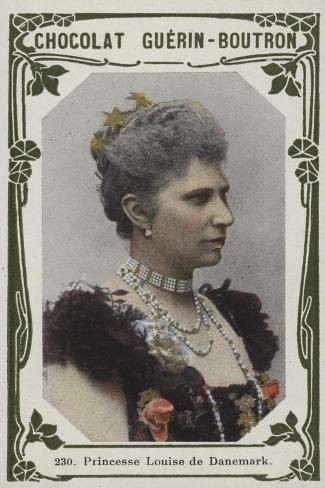
Queen Lovisa of Denmark, née Princess Lovisa of Sweden.
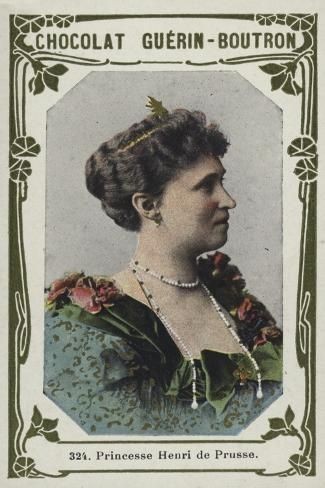
Princess Henry of Prussia, née Princess Irene of Hesse.
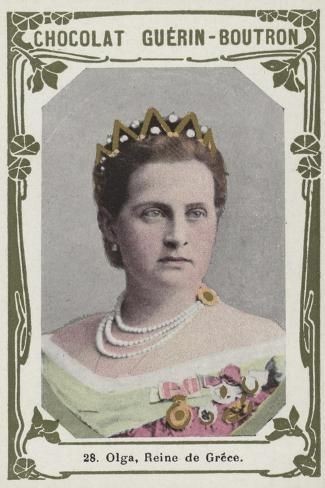
Queen Olga of Greece, née Grand Duchess Olga Constantinovna.
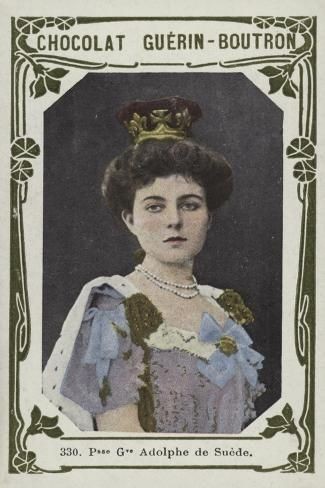
Crown Princess Margaret of Sweden, née Princess Margaret of Connaught.
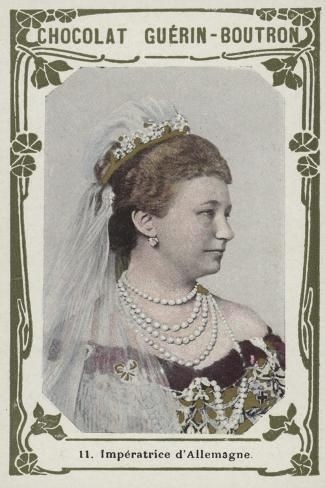
Empress Augusta Viktoria of Germany, née Princess Augusta Viktoria of Schleswig-Holstein.
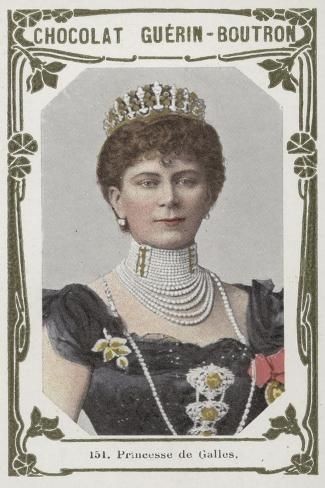
Queen Mary 𝚘𝚏 𝚝𝚑𝚎 𝚄𝚗𝚒𝚝𝚎𝚍 𝙺𝚒𝚗𝚐𝚍𝚘𝚖, née Princess Victoria Mary of Teck.
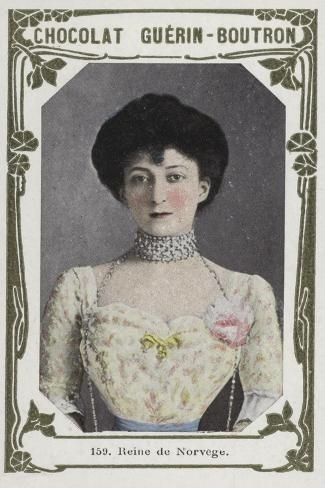
Queen Maud of Norway, née Princess Maud of Wales.
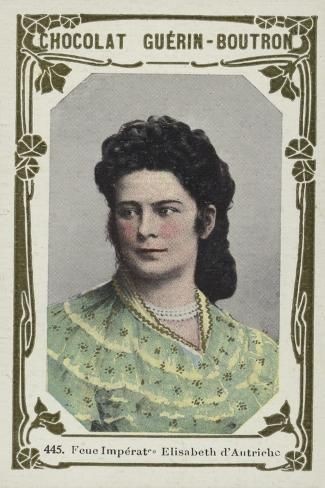
Empress Elisabeth of Austria, née Duchess Elisabeth in Bavaria.
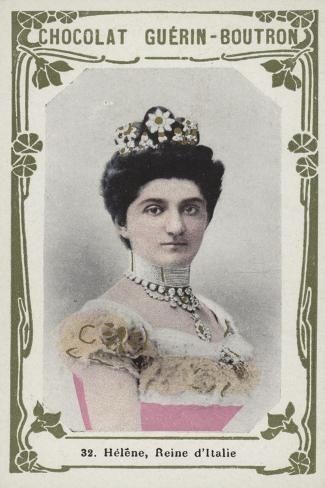
Queen Elena of Italy, née Princess Elena of Montenegro.
#queen lovisa of denmark#lovisa of sweden#princess irene of hesse#princess henry of prussia#queen olga of greece#olga constantinovna#princess margaret of connaught#crown princess margaret of sweden#empress augusta viktoria of germany#augusta viktoria of schleswig-holstein#queen mary#mary of teck#queen maud of norway#maud of wales#empress elisabeth of austria#empress sissi#queen elena of italy#elena of montenegro#chocolate cards
19 notes
·
View notes
Text

Princess Lovisa of Sweden, later Queen Louisa of Denmark, 1860s 🤍
#she is SO STUNNING!#🤍✨⭐️#Queen Louisa of denmark#Queen Lovisa of denmark#Queen Louise of denmark#Princess Lovisa of Sweden#1860s#danish royal family#swedish royal family#1800s#victorian era
12 notes
·
View notes
Photo
💗

Newlywed Crown Princess Lovisa of Denmark, neé Princess of Sweden. 1869
78 notes
·
View notes
Text
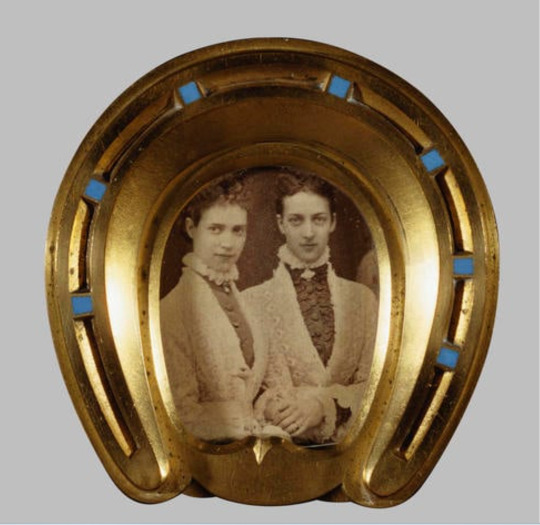

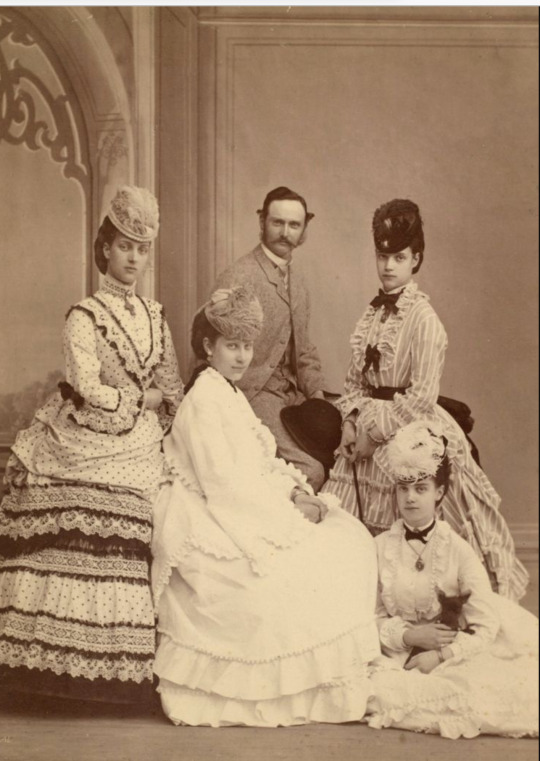


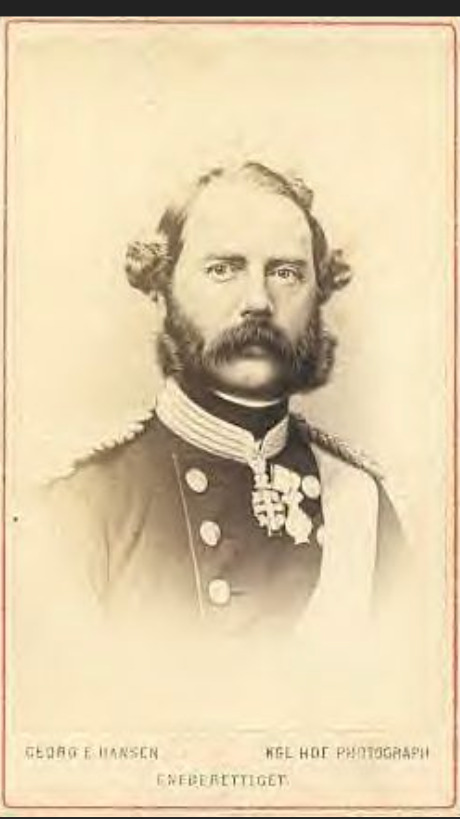
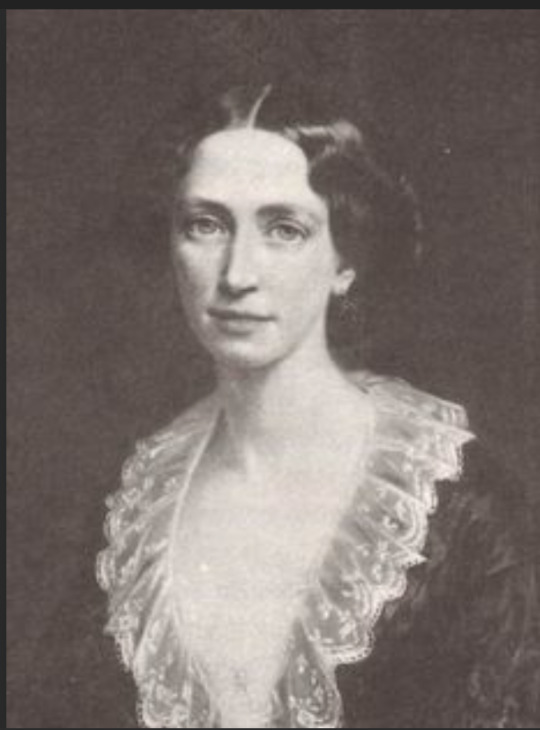
Photographs: 1. Alexandra and her younger sister Dagmar; 2. The Danish Royal Family: From left to right: Dagmar (Marie Feodorovna), the little one by Dagmar's knee should be Prince Valdemar, the youngest; standing in back of the child, the oldest male, future King Frederick VIII; King Christian the IX is in the middle, standing in back of his wife Louise; standing by Louise is Princess Thyra; next to Thyra is the future Queen Alexandra; standing in the back, between Thyra and Alexandra, is George, the future King of the Helenes; 3. In this picture, a very beautiful Princess Alexandra; sitting by her is Princess Lovisa of Sweden, the wife of Frederick, who is standing by her; next to Frederick is Dagmar, and sitting on the floor holding a little dog is Thyra; 4. Christian IX 5. Queen Louise; 6. Christian IX 7. Queen Louise
The Danish Royal Family
King Christian IX of Denmark (1818 - 1906) and Queen Louise of Denmark (1817 - 1898) nee Louise of Hesse-Kessel and their children
This Wednesday, a little love for the Danish Royal Family, who gave us Queen Alexandra of England, one of the most beautiful queens to sit on a throne since photography was created (no makeup, Botox, fillers, plastic surgery), and her sister, Empress Maria Feodorovna (Princess Dagmar of Denmark) one of the prettiest and most beloved Empresses of all the Russias.
So where did all that beauty come from? Most of us have seen photographs of Christian IX and Queen Louise in their older years. At least I had not seen them young. I looked for some photos, and I am including them here. Both of them were good-looking. Louise had a pretty face and beautiful eyes. And so did Christian! He was not bad-looking at all, tall and slim. The little cleft on Alexandra's chin apparently came from her father. The girls had good genes.
The House of Glücksburg, to which Christian IX and Queen Louise belonged, is a collateral branch of the German House of Oldenburg. Its members have reigned at various times in Denmark, Norway, Sweden, Iceland, Greece, and several northern German states.
King Christian IX and Queen Louise were double cousins. King Christian was called the "father-in-law of Europe" on account of the marriage of his children to foreign princes and princesses.
Current monarchs King Charles III of the United Kingdom, Queen Margrethe II of Denmark, and King Harald V of Norway, as well as former queens consort Ann Marie of Greece and Sofia of Spain, are patrilineal members of cadet branches of the House of Glücksburg. (gcl)
#romanov dynasty#danish royal family#Queen Louise of denmark#Louise of Hesse-Kessel#King Christian IX of Denmark#Princess Alexandra of Denmark#Princess Dagmar of Denmark#Princess Lovisa of Sweden and Norway#Thyra#Crown Princess of Hanover
18 notes
·
View notes
Text


Queen Mary of Denmark at the state banquet at Christiansborg Palace in honour of the Egyptian state visit to Denmark on 6 December 2024
For the first time ever wearing the Rose Diamond Bandeau—a new piece in the Danish Crown Jewels—converted from rose-cut diamonds in a belt to be worn around the waist last worn by Queen Lovisa (1851-1926). Queen Mary herself collaborated with the Danish Royal Collection—custodians of the Danish Crown Jewels—to make the diamonds convertible for new use.
The diamonds were originally owned by Princess Charlotte Amalie of Denmark (1706-1782) who left them for the crown upon her death. They were modified by Queen Caroline Amalie (1796-1881) to fit into the girdle in 1840.
#royaltyedit#historyedit#queen mary#crown princess mary#danish royal family#jewellery#2024#egypt to denmark 2024#**#gif: denmark
104 notes
·
View notes
Text




Queen Mary wore one of the two square brooches and a shortened version of the diamond chandelier earrings to the New Year's Reception at Christiansborg Palace on 7th January 2025.
The two square brooches with diamonds, set in silver and gold, are so-called shoulder brooches, intended to be worn on the shoulders, but today are worn freely wherever it suits. The two brooches, made around 1840, presumably for Queen Josefina of Sweden, may also be part of Josefina's inheritance from her sister, Empress Amélie of Brazil. Dowager Queen Josefina let her granddaughter, Crown Princess Lovisa of Denmark, inherit them, and they were then transferred to the Danish Royal House's Property Trust.
#queen mary#danish royal family#royaltyedit#royal fashion#jewellery#danish new year#danish ny 2025#mine
64 notes
·
View notes
Text
I can't... She's too pretty! 😭💞

Princess Lovisa of Sweden and Norway, Queen of Denmark
32 notes
·
View notes
Text
Royal Tiara Challenge 2024


Day 12 - The Danish Ruby Parure Tiara
The Danish Ruby Parure Tiara
This tiara began its life as a series of hair combs, purchased by Jean-Baptiste Bernadotte for his wife, Desiree, to wear at Napoleon’s coronation in 1804. When Bernadotte was elected Crown Prince of Sweden, the rubies became royal jewels. The combs were made into a bandeau by Queen Alexandrine of Denmark, who had received them from her mother-in-law, Lovisa of Sweden. Queen Ingrid turned the bandeau into a grand wreath tiara, which is now worn by Crown Princess Mary of Denmark. - The court Jewellery.com
40 notes
·
View notes
Note
Hello😁 can you share your favorite queens?
Thank you for the great ask anon, of course! 🥰
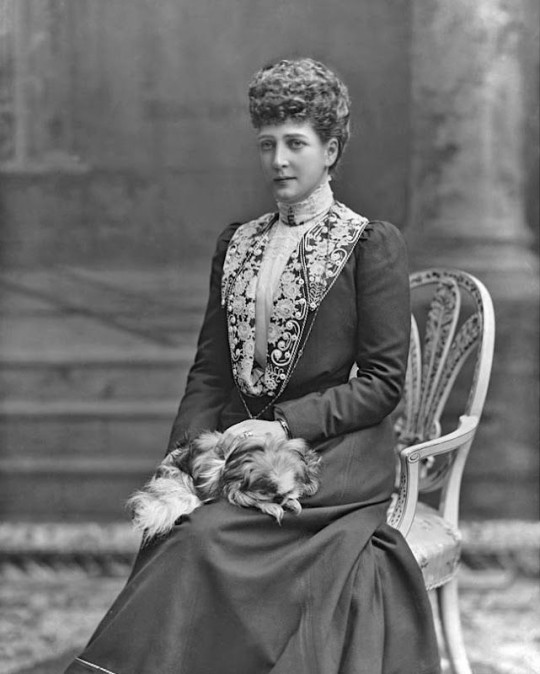
#1: Queen Alexandra of the United Kingdom – (nèe Princess Alexandra of Denmark, "Alix".
— She was beautiful, a warm and caring mother/grandmother, was popular as Princess of Wales and Queen Consort among of her people because of her good nature, and she supported many charities, including her own: "Alexandra Rose Day", founded by Queen Alexandra in 1912, this was a charity where flowers were being sold and all the money went to supporting Londoners in poverty. This was inspired by a priest in her native Denmark selling roses to raise money for those in need, Queen Alexandra brought the idea back to the United Kingdom. ❤✨
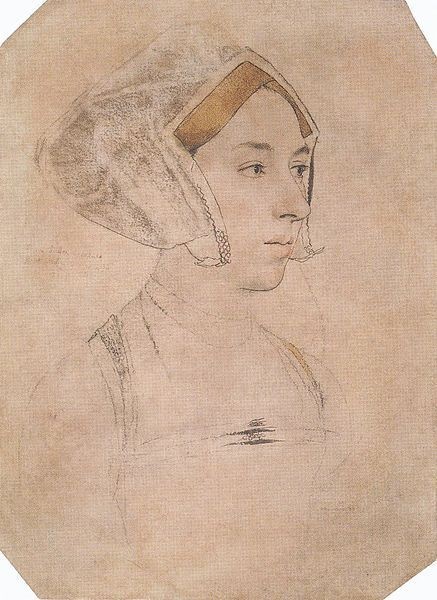
#2: Queen Anne Boleyn of England – (nèe Lady Anne Boleyn)
— She was intelligent, funny, caring and kind to all of people, and as her two years as Queen Consort she supported many charities, and even "gave alms to the poor, provided for widows, and even sewed shirts and smocks for the needy". She also helped with promoting new educational identities for monasteries, which were no longer under the protection of the Catholic Church. After only two years of being Queen Consort when she was said to have been 35 years old, she was executed after being imprisoned in the Tower of London for 17 days because she was accused of committing treason, but the true reason she was executed was because she failed to give King Henry VIII a male heir. ☹️💔
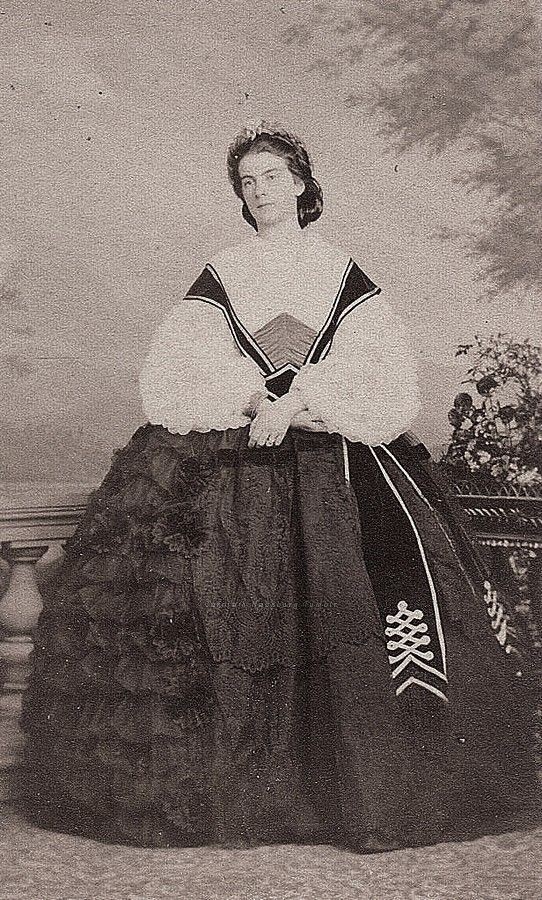
#3: Queen Marie Sophie of the Two Sicilies – (nèe Duchess Marie Sophie in Bavaria)
— She was beautiful, bright, and fierce. She was given the nickname the "Warrior Queen", the "Heroine of Gaeta" and the "modern Joan of Arc", rallying the troops, nursing the injured, feeding her forces at her own table and taunting Garibaldi's army from the battlements with the words; "Go ahead and shoot me. I will be where my men are". It was said of her that the Queen would "wipe your brow if you were wounded or hold you in her arms while you die". ❤️🔥👑
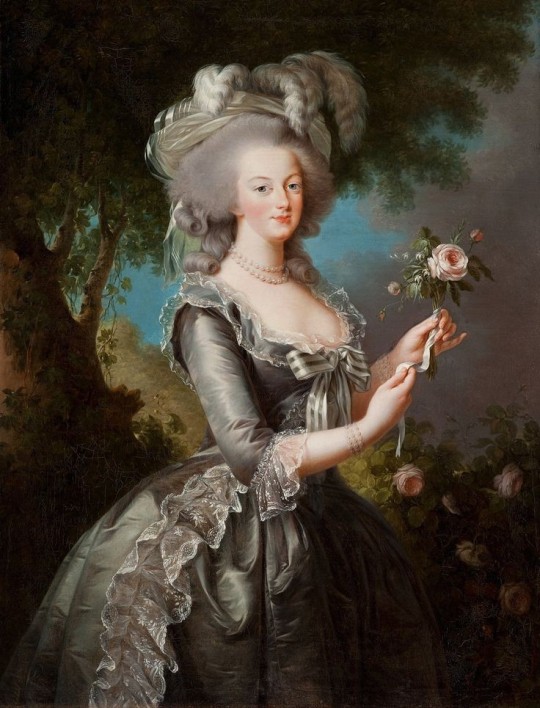
#4: Queen Marie Antoinette of France – (nèe Archduchess Marie Antoinette of Austria)
— She was honest, lovable, bold, a social butterfly who loved gambling, partying and extravagant fashions. Growing up she was closest with her sister, Maria Carolina, who was three years older, and with whom she had a lifelong close relationship. As Queen, Marie Antoinette was always unpopular, she spent lavishly, but her extravagance was only a minor cause of France's growing debt in the 1770-80s. Because of Louis XVI's indecisiveness, Marie played an increasingly prominent political role. But was very beloved for her charitable activities and patronage of the arts. She supported various charitable organizations and institutions, and she was also a benefactress of the poor. 💞🎀
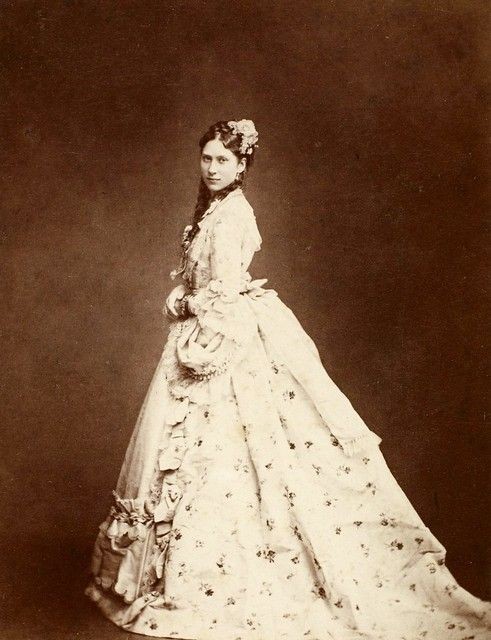
#5: Queen Lovisa of Denmark – (nèe Lovisa of Sweden)
— She was described as intelligent, with an ability to be natural, easy and friendly. And As Queen, she was mainly known for her many charity projects, an interest that she shared with her spouse. She did not care for ceremonial duties and public events, and lived a discreet life dedicated to her children and her interests in art, literature and charity. After a short tenure of only six years as Queen, she was widowed in 1912.
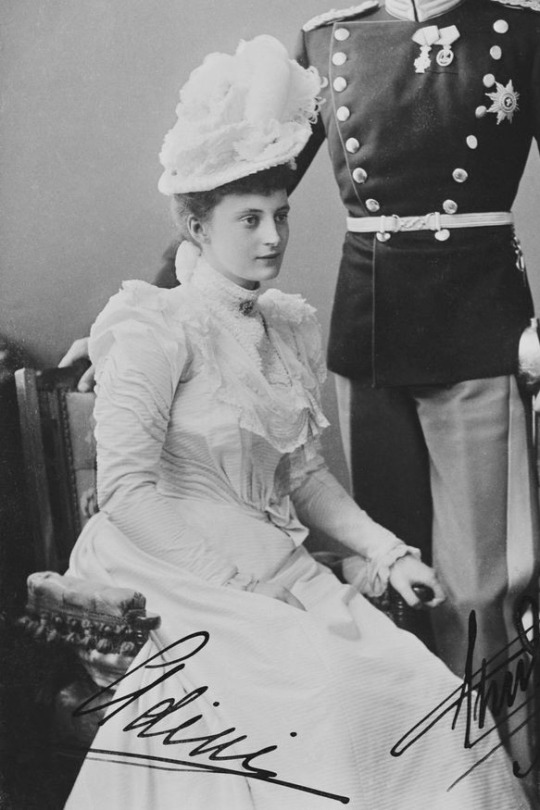
#6: Queen Alexandrine of Denmark – (nèe Alexandrine of Mecklenburg-Schwerin)
— She was reticent by nature. Her childhood was characterised by regular sporting activities, and from a young age she played the piano to a high standard. Her great interest in music stayed with her for her entire life and was passed on to her equally musical eldest son, Prince Frederik (IX). As of her first years as Queen, she had difficulty getting used to public attention, and she preferred to avoid the media limelight, but performed her functions in an exemplary manner. In the home her presence was crucial for the two boys, since Christian X was known for surrounding himself with a certain atmosphere of the barracks. Queen Alexandrine undertook extensive charity work until her death and was an avid golf player and photographer, who also loved doing needlework to a high standard. 💫
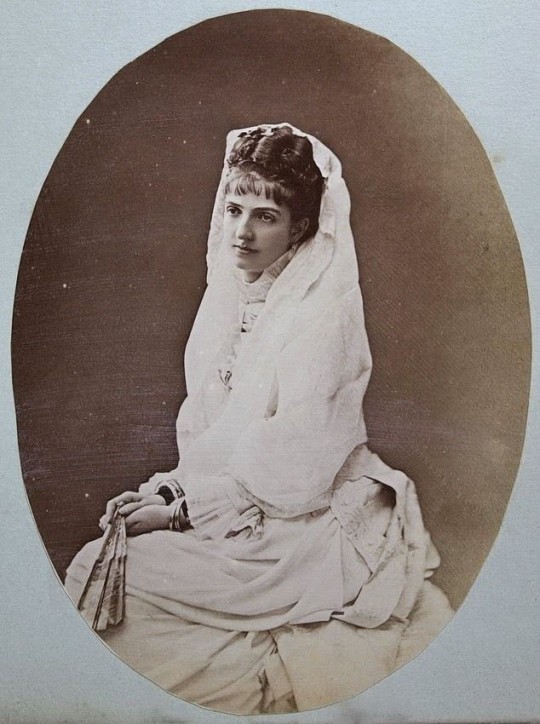
#7: Queen Margherita of Italy – (nèe Margherita of Savoy)
— She was described as sensitive, proud and with a strong force of will without being hard, as well as having the ability to be charming when she chose to. As to her appearance, she was described as a tall, stately blonde, but she was not regarded as a beauty. As Queen, she worked to protect the monarchy against republicans and socialists, and she gathered a circle of conservative intellectuals and artists known as the "Circolo della Regina" (Circle of the Queen) in her famous literary salon known as "Giovedì Della Regina" (Queen's Thursdays), where she benefited artists and writers.
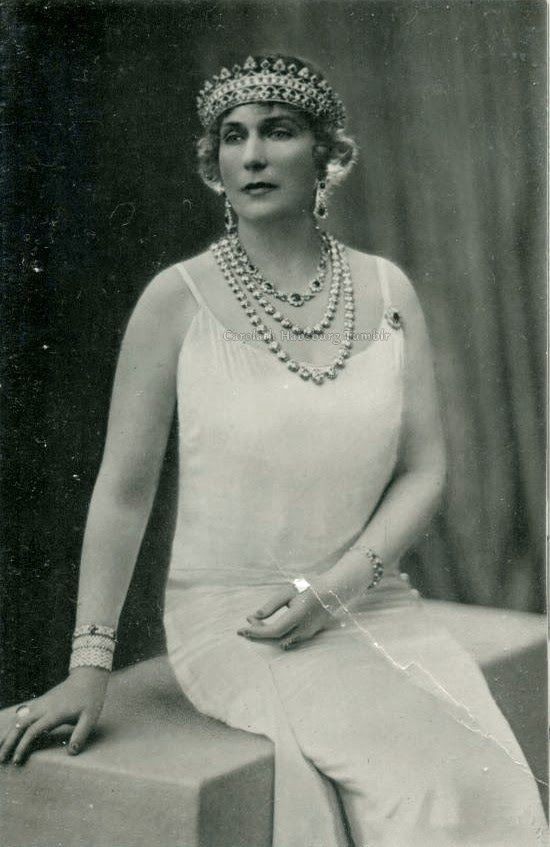
#8: Queen Victoria Eugenie of Spain – (nèe Princess Victoria Eugenie of Battenberg), "Ena".
— She was described as very kind but very strict and she devoted herself to work for hospitals and services for the poor, as well as to education. She also involved herself in the reorganization of the Spanish Red Cross. In 1929, the city of Barcelona erected a statue of her in a nurse's uniform in honour of her Red Cross work and since the the statue has been destroyed.
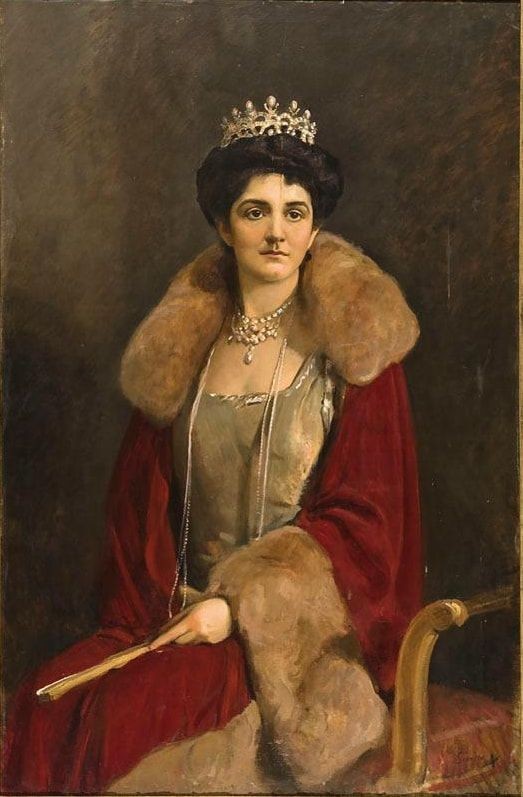
#9: Queen Elena of Italy – (nèe Elena of Montenegro)
— She was described as shy and reserved but also rather stubborn. Very attached to traditions, with a sensitive soul and a lively and curious mind, she was endowed with a strong love for nature: her favourite flower was the Cyclamen. She was a very tall woman of 180 cm (5'11). As Queen, her commitment to numerous charitable and welfare initiatives, which assured her great sympathy and popularity, was profuse. The Queen went well beyond mere charity: her evangelical spirit led her to practice every day the most genuine and most charitable love of neighbor.
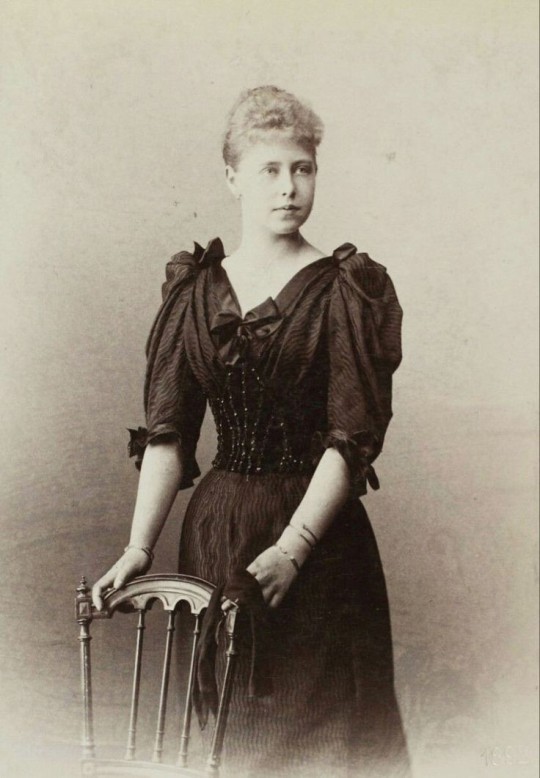
#10: Queen Marie of Romania – (nèe Princess Marie of Edinburgh), "Missy".
— She was described as very beautiful and high spirited. As a young girl, Marie was very close with her sisters, but mostly her sister Victoria Melita, they played many games with their father and Marie's mother, the Duchess of Edinburgh neglected Marie and her sisters' education, considering them not very bright or gifted. But in the fields of painting and drawing, Marie and her sisters had inherited her grandmother, Queen Victoria's talent. On October 11th, 1914, Marie and her husband Ferdinand were acclaimed as king and Queen in the Chamber of Deputies. Princess Anne Marie Callimachi, a close friend of Marie, wrote that "as Crown Princess, she had been popular; as Queen, she was more loved". Marie maintained a certain influence on her husband and the entire court, leading historian A. L. Easterman to write that "it was not Ferdinand, but Marie who ruled in Romania".
#answered ask#queen alexandra#alexandra of denmark#anne boleyn#queen marie sophie of the two sicilies#duchess marie sophie in bavaria#marie antoinette#queen lovisa of denmark#lovisa of sweden#queen alexandrine of denmark#alexandrine of mecklenburg-schwerin#queen margherita of italy#margherita of savoy#queen victoria eugenie of spain#princess victoria eugenie of battenberg#queen elena of italy#elena of montenegro#queen marie of romania#princess marie of edinburgh#informational
18 notes
·
View notes
Text
so many odd and wonderful thing seem to find their way into Denmark.
For example, I once came across Josephine de Beauharnais Jewelry in none other than the Danish royal Property Trust.

the story behind how it got there isn't unique to these piece specifically, but it definitely jumped around. "the two bracelets were inherited by the principal figure of one of the bracelets, the son Eugène. After his death, the bracelets were passed on to his second-oldest daughter, Amélie, who was married to Emperor Dom Pedro I of Brazil. The Emperor and Empress died without surviving children, so, upon Empress Amélie’s death in 1873, the bracelets went, together with, among other things, the Brazilian diamond frame, to Amélie’s older sister, Queen Dowager Josefina of Sweden. From her, it passed on to her granddaughter, Swedish-born Crown Princess Lovisa of Denmark, who was married to the Danish Crown Prince Frederik (VIII)."
#Hopsters random finds#historical#personal#Denmark#art#jewelry#josephine bonaparte#napoleon bonaparte#eugene de beuharnais#will tag later
10 notes
·
View notes
Text
Love them<3

Princess Lovisa of Sweden with Princess Thyra of Denmark. 1870s.
#queen lovisa of denmark#lovisa of sweden#princess thyra of denmark#crown princess thyra of hanover#danish royal family
56 notes
·
View notes
Text
King Frederik and Queen Mary hosted 2025 Diplomatic corps Reception

Queen Mary dazzled in repeated Golden gown for the annual diplomatic corps reception

Queen Mary of Denmark wore Teri Jon by Rickie Freeman gown with a White Turtleneck sweater, Diamond Earrings, Queen Lovisa’s Bracelet, White Gloves, Sash and Star of the Order of the Elephant, Royal Family Order of King Frederik, Badge of the Order of the Dannebrog at the diplomatic corps reception. More details can be found on RegalFille.
youtube
3 notes
·
View notes
Text


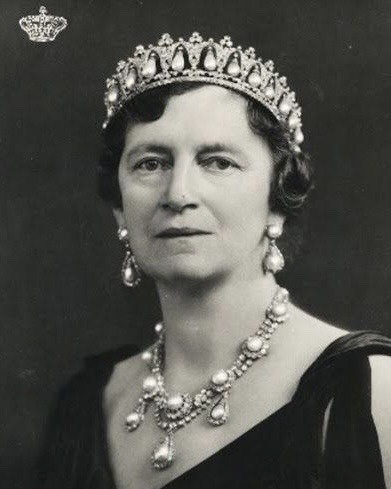

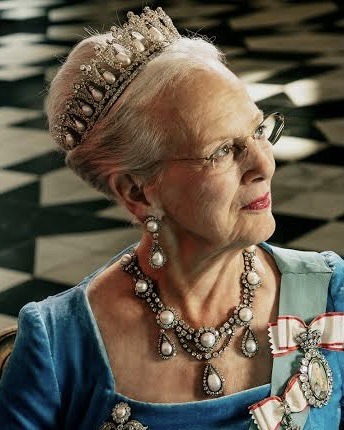
Royal Tiaras Highlights: The Pearl Poiré Tiara
This tiara is made of diamonds set with eighteen pear-shaped (or “poiré”) pendant pearls, and a matching diamond brooch with five pearl pendants. The piece is believed to have been made in the first half of the nineteenth century, likely as a wedding gift to Princess Louise of Prussia for her marriage to Prince Frederik of the Netherlands in 1825.
In 1849, Prince Frederik and Princess Louise’s eldest daughter, Princess Louise, got married to Prince Charles of Sweden; later becoming King Charles XV and Queen Louise of Sweden and Norway. When Princess Louise died, tiara was left for daughter Queen Louise, and eventually passed down to her daughter, Princess Lovisa. Lovisa got married to Crown Prince Frederik of Denmark in 1869, and she took the tiara with her to Copenhagen. The piece remains with the Danish Royal Family ever since.
51 notes
·
View notes
Text
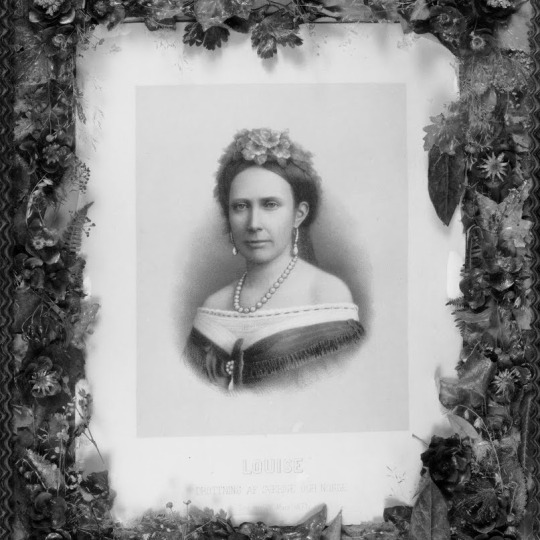
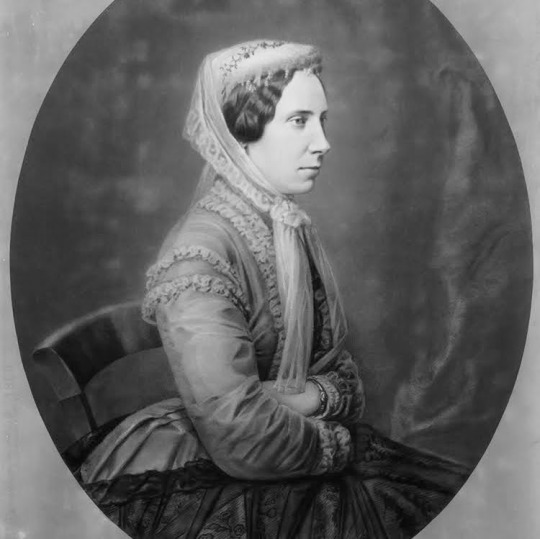
March 30, 1871 - Queen Lovisa died at 42 in Stockholm (presumably at the Royal Palace). At the end of the previous year, she had visited the Netherlands to keep vigil at her mother’s deathbed, and upon arriving back in Stockholm, both she and Karl XV fell ill. It’s not specified what Karl XV had with, but we know Lovisa caught pneumonia.
On her deathbed, she and Karl XV had long, dramatic conversations. Lovisa apologised to her husband “for all the times she might have done him wrong”, but Karl XV answered by crying and blaming himself. Karl’s mother, the Dowager Queen Josefina, is said to have fainted due to these dramatic scenes, and the couple’s daughter, Princess Lovisa (by then Crown Princess Louise of Denmark), described it as “it was as if mother laid bare her whole life for us.”
Photo 1: Framed photograph of Queen Lovisa by Mathias Hansen ca. 1865. Photo via Nordiska museet. Photo 2: Portrait of Queen Lovisa by Court Photographer Johannes Jaeger, mid-1869. This is most likely one of the last portraits/photographs of Lovisa, but also the oldest Jaeger photo in the Royal Court's collection. Photo via the Bernadotte Library's archives.
#swedish royal family#royal history#queen lovisa#louise of the netherlands#swedish history#on this day#today in history#my upload
2 notes
·
View notes
Text
She was so beautiful🥹🤍


A beautiful official potrait of Princess Lovisa of Sweden and Norway, later Queen Louise of Denmark ca 1868-71.
60 notes
·
View notes
Text
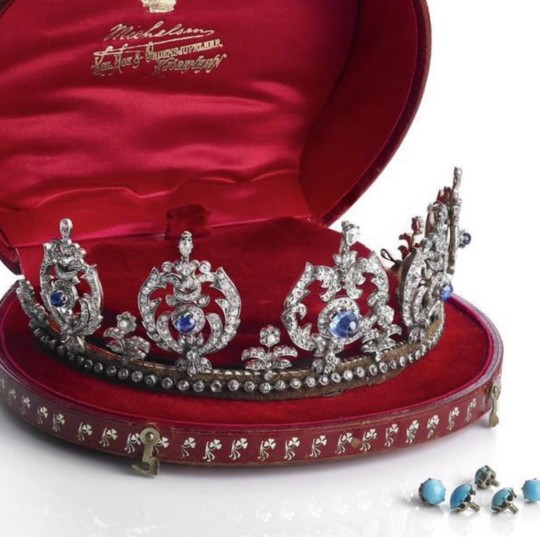
~ "A diamond and sapphire tiara, 1890s, with a Royal provenance, each foliate element centred by a cabochon sapphire, flanked by a floral motif, set with old cut diamonds, gold and silver mounts. The cabochon sapphires can be swapped out for turquoise cabochons. The tiara belonged to Princess Thyra, daughter of King Frederik VIII and Queen Lovisa of Denmark. -Her siblings were King Christian X of Denmark, King Haakon VII of Norway, and Princess Ingeborg of Sweden, among others- Princess Thyra never married and left the tiara to her niece, Princess Caroline-Mathilde of Denmark, who chose to marry her first cousin, Prince Knud, the younger brother of King Frederik IX Their only child was Princess Elisabeth, receiving the tiara from her mother in the 1960s. She was a first cousin of Queen Margarethe II and wore it quite often at state functions and in 2004 at the wedding of crown prince Frederik and Mary." ~
3 notes
·
View notes